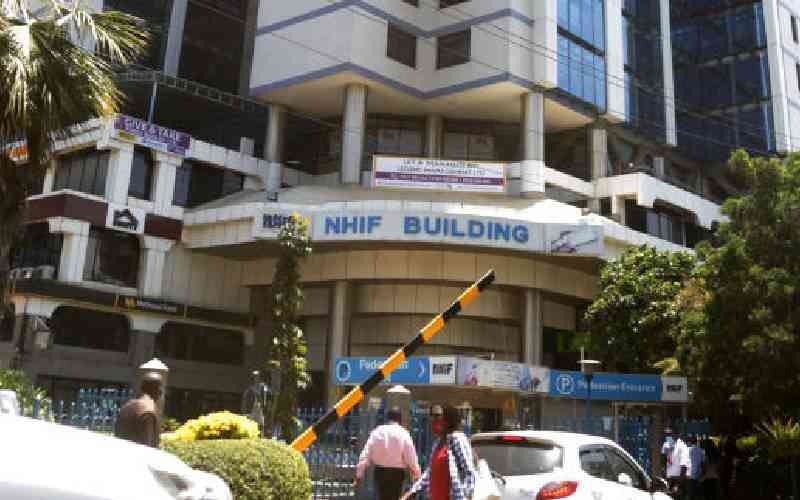×
The Standard e-Paper
Smart Minds Choose Us

An audit has raised alarm over the financial state of the national health insurer amid revelations of loss-making schemes, fictitious claims and skewed tenders running into billions of shillings.
The report, prepared for the parastatal and obtained by The Sunday Standard, says the National Health Insurance Fund (NHIF) was struggling with a mounting pile of unpaid hospital claims, which shot up by Sh5 billion in the six-month period ending December 2022.